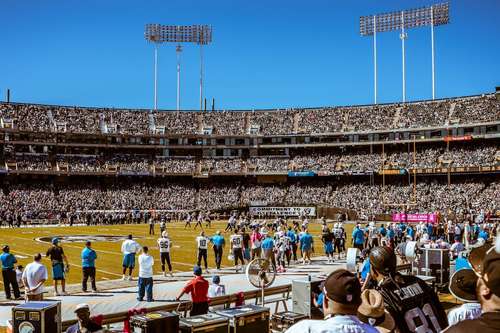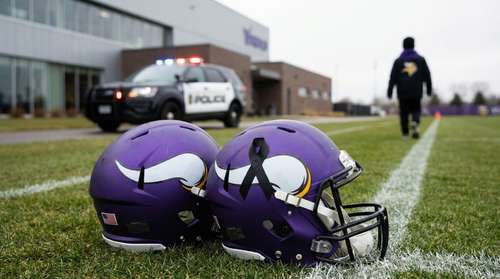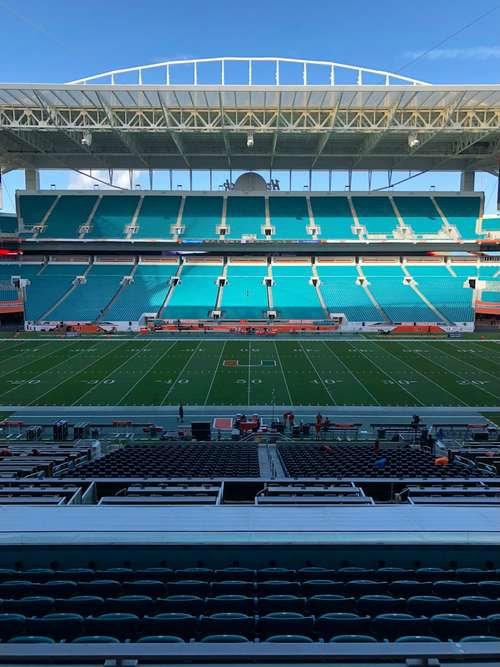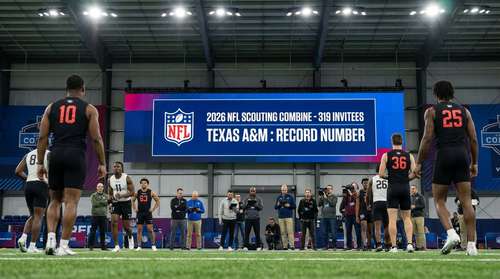The NFL has a way of keeping things interesting and unpredictable, and this season could bring one of the most unusual scenarios in recent memory for the Los Angeles teams. Imagine the energy surrounding the conference championships as both the Chargers and Rams continue their dominant runs, only to find themselves potentially sharing the same staging area at SoFi Stadium. It's a scenario that feels more like something out of a sports novel than real life, but the logistics are as real as the excitement on the field.
It’s fascinating to think about the financial, scheduling, and fan engagement implications if these two powerhouse franchises find themselves in a head-to-head playoff battle on their home turf. This isn’t just any conflict—it’s a stadium conflict where pride, logistics, and history all interlock into a narrative that could redefine the NFL playoffs. But how would the NFL even navigate this scenario?
Stadium Conflict: A New Twist for Los Angeles Teams
This section digs into the potential stadium conflict and what it means for the NFL playoffs. Our featured teams, the LA Chargers and LA Rams, are both heavyweights in their own right, and their reliance on SoFi Stadium as a home base has set the stage for a one-of-a-kind showdown.
The idea of a single stadium hosting two conference championship games might sound like a scheduling headache, but it also represents an opportunity to maximize one of the NFL’s most modern venues. SoFi Stadium isn’t just a building—it’s a beacon of modern design, technology, and fan experience, making it a coveted spot for playoff games. It’s not every day that you see potential scheduling conflicts even in a league as well-oiled as the NFL, yet here we are facing a possibility that could test the limits of traditional sports scheduling.
When you think about it, this isn’t merely an issue of logistics, but of symbolism and pride. Fans of both teams want to claim their home-field advantage during such a crucial match-up. The thought of a stadium conflict might leave some wondering if the NFL would consider expanding their schedule or even creating a hybrid solution that accommodates both teams seamlessly. It’s like having two major festivals scheduled on the same day at the same location—it could cause some chaos, but also create an event unlike any other.
Navigating NFL Scheduling and Stadium Logistics
This brief introduction sets the stage to explore the nuts and bolts of NFL scheduling and the complexities of stadium logistics. Handling two major teams under one roof during the playoffs is no small feat, and there’s plenty to consider!
For starters, the NFL’s schedule is already a marvel of coordination, waving through various time zones and balancing team travel. When we add a stadium conflict into the mix, we are talking about getting every detail right. The planning might include adjusting kickoff times, modifying pre-game and post-game routines, and ensuring that the stadium staff and local authorities are prepped for a potentially higher volume of events. These logistical challenges remind me of a high-stakes chess match where every move counts.
Every NFL stadium is a marvel of sports scheduling, but SoFi Stadium has raised the bar with its modern amenities and fan-friendly design. The idea of being a battleground for both the Chargers and Rams means that stadium availability, parking logistics, and broadcast setups might need a whole new playbook. In the case of a stadium conflict, imagine the coordination required behind the scenes—each detail is as critical as a last-second touchdown!
The NFL schedule is built on a premise of precision, and this potential conflict could force an evolution in how teams like the LA Chargers and LA Rams utilize their home turf. There’s a lot to negotiate—everything from the fine print of lease agreements to the nitty-gritty of game-day operations. It’s this sort of complexity that makes the world of NFL scheduling so endlessly fascinating.
Implications for Playoff Games and Fan Experience
Next up, let’s consider how such a stadium conflict might change the landscape of the NFL playoffs and fan experience. Playoff games are moments where memories are made, and having both teams potentially share the same home field can lead to mixed emotions among fans and organizers alike.
This possibility could mean that fans of Los Angeles sports will have to navigate a unique celebration or even a division of loyalties. When you attend a playoff game, you expect a sense of pride in your team and their stadium. Now, if both the Chargers and Rams have a stake in hosting, that pride could transform into friendly rivalry and even logistical compromises during the big game days. Imagine two rival fan bases uniting over a single venue, albeit with a tinge of irony!
In a way, this stadium conflict could act as a catalyst for innovation in fan engagement. With the shared spotlight at SoFi Stadium, both teams might introduce joint initiatives or packaged experiences that honor the history and rivalry of Los Angeles teams. Sports events have always been about community, and this shared scenario might just be an opportunity to reinforce the rich football culture in the NFL playoffs.
The notion of a stadium conflict also spells challenges for broadcast crews and NFL news teams who will be covering what could be one of the most talked-about scheduling dilemmas in recent memory. The narrative isn’t just about which team wins—it’s about how a shared stadium could redefine the game-day experience. It’s a story that transcends simple sports news and touches on elements of teamwork, logistics, and the inevitable chaos of modern sports events.
Potential Solutions and What It Means for the NFL
Here we explore possible ways the NFL might handle the conflict, weighing the pros and cons of various solutions. Considering both teams use the same state-of-the-art facilities, creative scheduling might be the answer. The NFL has a track record of addressing scheduling hurdles, so it’s intriguing to think about what measures could be put in place.
One approach could be to slightly shift game times or even rearrange which conference championship gets the home-field advantage. The idea is to ensure both the LA Chargers and LA Rams get a fair shot without compromising on the quality of the NFL playoffs. Some have suggested that utilizing alternate venues or even splitting the game-day activities within different parts of the stadium might provide a workable solution.
Another potential solution involves a coordinated arrangement wherein both teams share responsibilities for stadium preparation. This collaborative effort would not only solve the logistical issues but also add a layer of camaraderie between competitors. The thought of a cooperative spirit during the high-stakes environment of conference championships could be a unique narrative for the NFL to explore!
The conversation around this possible stadium conflict is more than just a scheduling headache—it’s about innovation in sports scheduling and the evolving face of NFL stadium logistics. It underscores the need for forward-thinking and adaptability in a league that prides itself on high-pressure, high-reward moments.
Every major sports league faces challenges like these, but when it comes to the NFL, the stakes are always amplified. Fans, players, and organizers are in for a ride if this scenario comes to fruition. It’s a reminder that in sports, as in life, sometimes the best solutions arise from the greatest challenges.
Looking Ahead: The Future of Los Angeles Sports
This section reflects on the broader implications of such a unique scheduling scenario for Los Angeles sports and for the NFL as a whole. As the Chargers and Rams face the possibility of sharing the same iconic venue for conference championships, the long-term impacts could reshape the landscape of NFL playoffs.
There’s a lot of discussion in NFL news circles about the future of stadium logistics and how teams can adapt to deal with such disruptions. Los Angeles sports have always been at the forefront of innovation, and this potential stadium conflict could push the NFL to adopt more dynamic scheduling methods.
For fans, this scenario heightens the anticipation around playoff games. It brings to mind the idea that every season is unpredictable and that the NFL is continuously evolving. Much like a well-penned drama, the unfolding events keep everyone guessing and engaged, ensuring that each game is more than just another tick on the calendar.
The thought of a shared stadium for such crucial games might ultimately lead to creative partnerships and a refreshed perspective on what it means to host playoff games at premier NFL stadiums. Both the LA Chargers and LA Rams will likely find themselves not only vying for wins on the field but also for the title of having the best game-day experience under one roof.
As we look to the future, one thing is clear: this potential conflict is a testament to the evolving nature of sports scheduling and the innovative spirit that flows through the NFL. With every challenge, there is an opportunity, and this could very well be the moment when the league redefines how stadium logistics and fan enthusiasm go hand in hand.
In the end, scenarios like these add a thrilling twist to the NFL playoffs. They remind us that in the world of sports, the unexpected is just around the corner. Whether you’re a diehard fan or a casual observer, the possibility of a shared stadium showdown between the Chargers and Rams is a story worth following closely!




